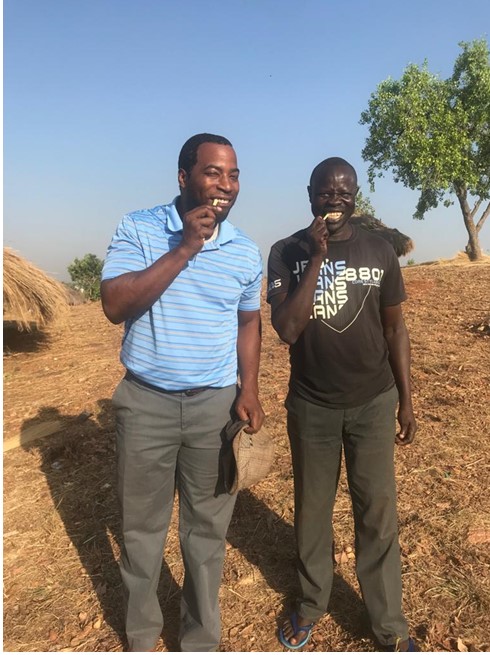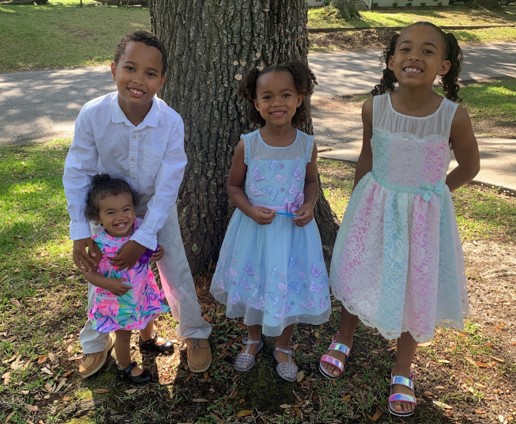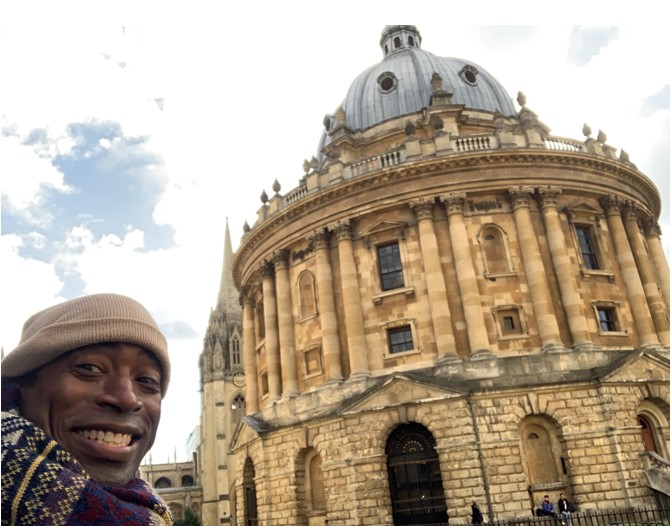A Letter from Shelvis and Nancy Smith-Mather, serving in South Sudan and the United Kingdom, currently in the United States
Spring 2022
Write to Shelvis Smith-Mather
Write to Nancy Smith-Mather
Individuals: Give online to E132192 in honor of Shelvis & Nancy’s ministry
Individuals: Give online to 052032 for RECONCILE
Congregations: Give to D500115 in honor of Shelvis & Nancy’s ministry
Churches are asked to send donations through your congregation’s normal receiving site (this is usually your presbytery)
Subscribe to our co-worker letters
Dear friends,
I am a little concerned. My friends and I sit closely, shoulders pressed against shoulders pressed against the grey vinyl interior in the back seat of a Toyota. It’s late, we’re tired, but the soldiers’ questions persist.
“Where have you been?”
“Where are you going?”
“Are you trafficking weapons?”
One soldier questions us as two others rummage through our possessions at this military checkpoint.
“We’re lecturers, teaching at a small South Sudanese seminary.”
My clergy collar is tightly fastened around my neck as a soldier thumbs through my passport.
Eighteen months ago, when military forces exacted a “scorch and burn” campaign through our town, more than 70% of the population fled across the country’s border into Uganda. So too did the seminary in which I now teach.
The civil war displaced my wife and children and the many families we had the honor of living in the community with for the last six years. Like those families, the school was forced to restart in a new context and a new country. The school was now based in Arua, a small town right outside the refugee camps in Uganda.
Two staff members and I were in Yumbe’s refugee settlement visiting students during their semester break the last few days. We are currently on the way to visit others.We have, unfortunately, been driving for the last two hours in the wrong direction, moving on unpaved roads lit by the stars, missing road signs in the shadows of the night. Our destination sits 160km behind us (+100 miles) as we pause, detained by the military.
At the start of the trip, we veered into a ditch; fortunately, we were rescued by a crowd of children. Even without shoes, several of them were eager to leave their games to help us push our compact car back onto the road.
We didn’t realize it then, but we were destined to run out of gas later that evening.
At that moment, however, our military detainment, poor tire traction, and limited fuel supply was not my most pressing concern. At 10 p.m., I needed cell phone reception to call my potential supervisor Ramon Sarró.
For the last few months, we emailed each other about him potentially supervising my project and supporting my application to Oxford. You see, I had already applied to Oxford several times, and had been rejected by Oxford several times, by departments uncertain as to whether my project fits their foci; unsure if my interest lined up with their expertise, unclear as to why I proposed to do research alongside the people I wanted to study.
But I kept coming back, again and again, “no” after “no,” application after application because I wanted to understand the complexities and social dynamics of the war entirely. Even more, I recognized that any insight learned from local peacebuilders might help external peacebuilders (who are struggling to meet their goals), deepen academic theory (often lacking contextual nuance), and move the dial (even if only slightly) more closely towards peace in this young country.
Moreover, at the very least, research at Oxford would provide a respected platform, blessed by South Sudanese collaborators, to tell a different story about South Sudan, a story other than what has been shared previously at this university.
Not stories of warlords or feuding tribalists or aid recipients, but stories of peacebuilders with courage, brilliance, and agency. A story told together with South Sudanese rather than about them.
For those wondering if I made it to that phone call, let me tell you, despite the military blockade, the fuel shortage, and bare tires, the phone call was made to Ramon at 10 p.m.
And at the end of the conversation, he committed to supporting my application, and days later, I received an email admitting me into Oxford.
My trip that evening felt much like my journey to Oxford, framed by setbacks, wrong turns, detours, and delays, receiving help in unexpected places, and care at unexpected times, thus allowing me to eventually end up at the desired destination.
After receiving the letter of acceptance, we spent a few more months in Uganda, then a summer in the U.S. We landed in Oxford, England on September 1, 2019. The plan for our family to live in Oxford for two years, with Nancy taking semi-annual trips back to Uganda and South Sudan, upended when the U.S. began closing her borders due to COVID. In March 2020, we left the UK and began a series of stays in temporary housing which lasted about a year and a half.
After taking a year off of my studies at Oxford, welcoming a new baby, seeing her through a concerning start to her life and settling my family in North Charleston, I can now be found in England, counting down the days to return to Nancy and the kids after a long year apart. Our hope is to return Uganda as a family in the coming months, where my research and our work on reconciliation will continue, alongside our South Sudanese colleagues.
Thank you for supporting us through this season of “setbacks, wrong turns, detours, and delays.” We hope you have felt God’s guidance as you navigated the many changes and challenges on your road as well. May we all continue to press forward, recognizing we may not know what lies ahead, but trusting God will eventually guide us to the needed destination. To God be the glory. Amen
Shelvis
![]() You may freely reuse and distribute this article in its entirety for non-commercial purposes in any medium. Please include author attribution, photography credits, and a link to the original article. This work is licensed under a Creative Commons Attribution-NonCommercial-NoDeratives 4.0 International License.
You may freely reuse and distribute this article in its entirety for non-commercial purposes in any medium. Please include author attribution, photography credits, and a link to the original article. This work is licensed under a Creative Commons Attribution-NonCommercial-NoDeratives 4.0 International License.


